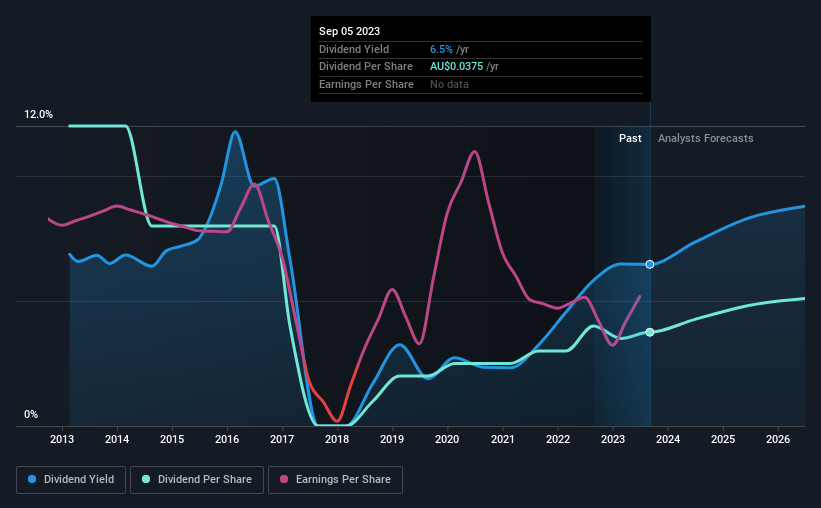Count (ASX:CUP) Is Paying Out A Larger Dividend Than Last Year

Count Limited, a company listed on the ASX (Australian Securities Exchange) under the ticker symbol CUP, has recently made an announcement regarding an upcoming increase in its regular dividend. On the 11th of October, the company will be paying out A$0.0225 per share, which is 13% more than the amount paid during the same period last year (A$0.02). This new dividend will bring the annual payment to 6.5% of the company's stock price, a figure that surpasses the average dividend paid by most companies in the industry.

Take a look at our most recent examination for Count.
Count's Earnings Securely Cover All Payouts
Having a high dividend yield is definitely a positive attribute, but it is important to assess whether the payment can be maintained over time. The previous dividend accounted for a significant portion of available cash, which was compounded by the absence of additional funds. We believe that this approach might make the dividend more precarious in the coming years.
In the upcoming year, experts predict that EPS will grow by 41.1%. If the dividend follows its current trajectory, our calculations indicate that the payout ratio will be 47%, placing it within a favorable range.
Although the company has been distributing dividend payments for quite a while, there has been a reduction in these payments at least once within the past decade. In 2013, the yearly dividend payment stood at A$0.12, whereas the most recent payment in the last fiscal year amounted to A$0.0375. This signifies a decline of 69% in the dividend amount over that time frame. Decreasing dividends are not something we typically seek, as they can indicate that the company is encountering difficulties.
The Count's Dividend: Limited Growth
Considering the fact that dividend payments have been gradually declining, just like a glacier in a world experiencing global warming, it is essential to investigate if there are any positive developments in store. It is quite uplifting to observe that Count has managed to increase their earnings per share by an impressive 32% annually for the past five years. While rapid earnings growth is indeed favorable, it is seldom sustainable without reinvesting in the business—an aspect that Count has unfortunately neglected.
Unstable Dividend Of The Count
In general, we are pleased to observe an increase in dividends, but we do not believe that Count will be an excellent choice for generating income. Although we do feel that the amount of distributions is somewhat excessive, we cannot completely dismiss the possibility of Count becoming a reputable dividend provider in the future, as its earnings are steadily increasing. However, we would advise a degree of caution when relying heavily on this stock for dividend income.
Investors typically lean towards companies that maintain a steady and reliable dividend policy rather than those with an inconsistent approach. Nevertheless, there are additional factors that investors should ponder when evaluating stock performance. In this regard, we have identified three cautionary indicators for Count that investors should bear in mind. Additionally, if you are someone who prioritizes dividend investments, you may find our curated assortment of high-yield dividend stocks worth exploring.
Do you have any feedback about this article? Are you worried about the content? Contact us directly to express your concerns. Alternatively, you can send an email to editorial-team (at) simplywallst.com.
This blog post from Simply Wall St is of a general nature. We offer insights based on past information and predictions from analysts, using a fair and impartial approach. Our articles should not be taken as financial advice and should not be relied upon for making stock purchase or sale decisions, as they do not consider your specific goals or financial situation. Our aim is to provide in-depth analysis focused on the long-term, using fundamental data. Please note that our analysis may not include the most recent company announcements or qualitative materials that may affect stock prices. Simply Wall St has no vested interest in any of the stocks mentioned.

























